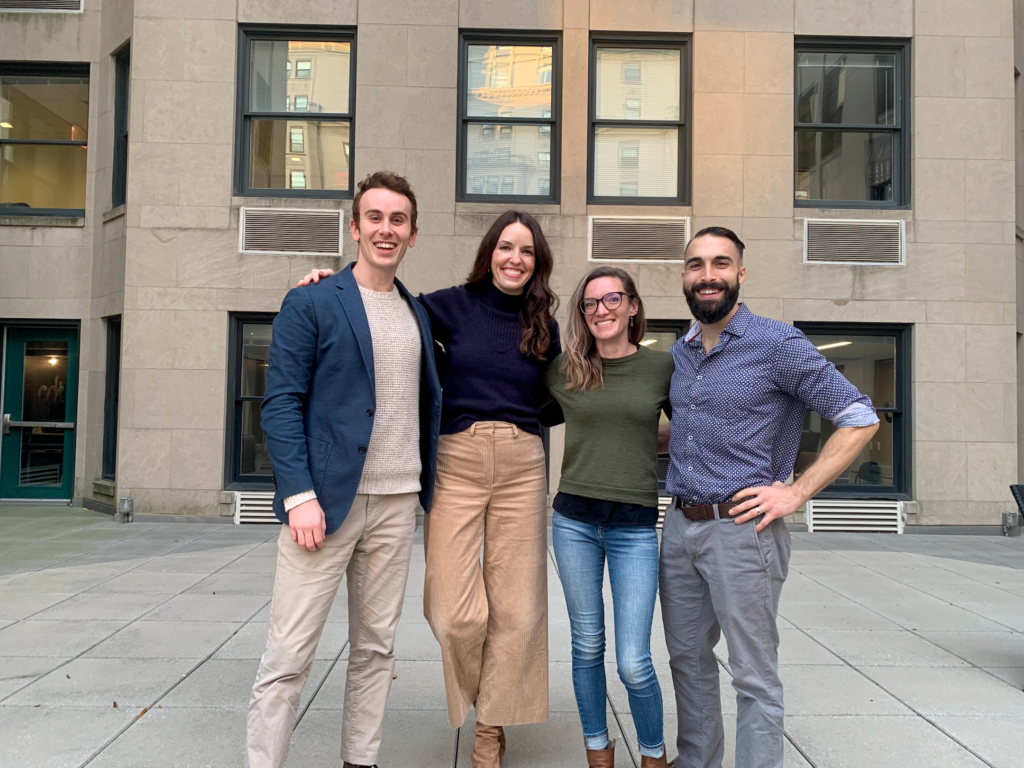Equity in Civic Technology, Privacy & Data
Looking Forward to the New Year: Reflections from the Equity in Civic Technology Project

Happy holidays to our partners and readers from the Equity in Civic Technology Project and the rest of the team at CDT! As we wrap up the last of our 2021 projects and prepare to sign off for the holidays, we’ve spent time reflecting on the state of K-12 education during the past year and the national conversations we expect to continue in 2022.
2021 has been another challenging year for the education community. Amidst the ongoing Covid-19 pandemic, simmering political tensions, and nationwide labor shortages, teachers and students alike have continued to demonstrate resilience and resourcefulness in pursuing their education goals. This included quick pivots in response to shifting educational contexts and responsiveness to dynamic health needs. Ongoing Covid-19 threats, like the spread of the Omicron variant, unfortunately mean that the public health risks of the past year won’t be fully left behind in 2022.
Looking forward to 2022, our own work on the Equity in Civic Technology team will build on the issues we’ve worked on through the past year, while at the same time expanding into other important areas of responsible civic technology use. We continue to call for privacy-protective policies and practices that close the homework gap and provide students with the technology access needed to receive quality education. The U.S. made critical advances to this goal in the past two years, but millions of students remain unconnected and face obstacles to fully participating in digitally-enabled learning of the immediate future. Moreover, many of the efforts to bring students online has come at the expense of their privacy due to a lack of safeguards around data practices and limited emphasis on digital literacy.
This past year we investigated the privacy implications of configuration decisions regarding school-issued devices, which are an important component of closing the homework gap. We expect these questions to continue in 2022 as schools make decisions about in-class use of devices and the maintenance they require. One theme that emerged from our research is the chilling effects and discriminatory implications that can arise when students are aware they are being extensively monitored. The interplay between student wellbeing and technology practices is complex and not easily resolved, but we hope to analyze it further and provide recommendations in the year to come.
Another theme that emerged from our work this past year is the importance of cooperation across public agencies to effectively deliver services to students, as well as the need for community participation in these decision-making processes. In 2022, we’ll continue to explore this intersection, calling for increased public access and visibility into public-sector data systems. We’re also continuing to pay attention to the use of algorithmic processes to distribute public services and the safeguards needed to avoid inequitable practices.
Across all of these issues, we’ll continue to undergird our analysis and guidance with original research and active dialogue with stakeholders navigating them in their daily lives. Centering educator and community voices is essential to understanding the most pressing policy issues and providing actionable policy solutions. We look forward to incorporating this into our work through survey research, partner workshops, and public events.
The year ahead will include challenges and opportunities for using technology and data responsibly to serve the public good. As schools and other public agencies finally endeavor to leave the worst effects of Covid-19 behind, they should take the opportunity to critically reflect on existing digital systems and those they seek to implement moving forward. We look forward to working with them and their stakeholders to help advance thoughtful and equitable technology practices.


